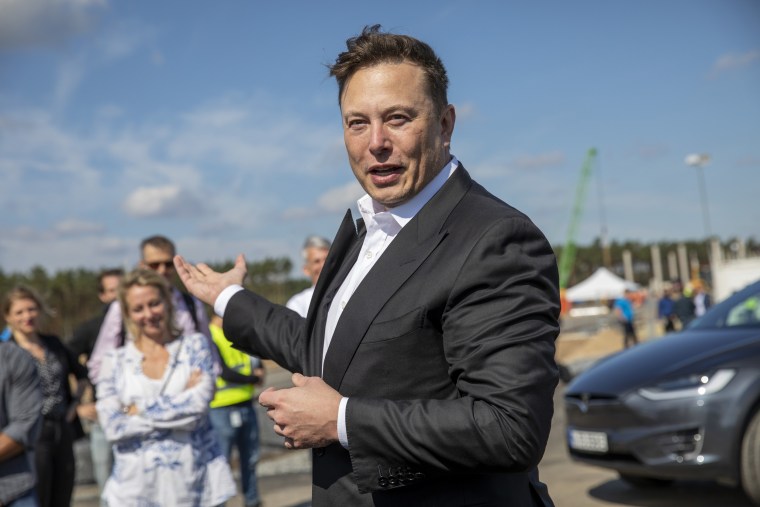Twitter on Wednesday suspended accounts that track the locations of private airplanes, including one that tracked CEO Elon Musk's jet, which was reinstated by the evening.
Musk tweeted that the accounts violated Twitter's "doxxing" rules, meaning they revealed nonpublic personal information.
The account, @ElonJet, which had amassed more than half a million followers, was listed Wednesday morning as suspended for having violated unspecified Twitter rules. Later in the day, Twitter accounts tracking the jets of Meta CEO Mark Zuckerberg and Amazon founder Jeff Bezos were also suspended.
The Musk-tracking account was created by Jack Sweeney, 20, a Florida college student. Sweeney's personal Twitter account was also suspended Wednesday.
Musk went further Wednesday evening when he said he would pursue legal action against Sweeney after he claimed a “stalker” confronted a car carrying Musk’s child Tuesday night in Los Angeles. Musk did not say whether police were called.
Spokespeople for the Los Angeles Police Department and the Los Angeles County Sheriff’s Department were unable to confirm that any report was made without more information.
“Last night, car carrying lil X in LA was followed by crazy stalker (thinking it was me), who later blocked car from moving & climbed onto hood,” Musk wrote. “Legal action is being taken against Sweeney & organizations who supported harm to my family.”
Sweeney said he hasn't received any notification of legal action, and the last time his bot tweeted anything was Dec. 12, "which is not last night, so I don’t get how that’s connected.”
"They have their legal standing, and all I’m doing is taking their data and putting it on Twitter," he said in a phone interview. “There’s nothing I’m doing wrong, and I didn’t mean any harm.”
Sweeney added: “It could just be a whole scare tactic, too. I don’t know.”
Sweeney had told Newsweek that he didn’t consider the account a security threat, noting that the data isn’t real-time.
Last month, Musk said he would allow the @ElonJet account to continue even at the risk of his own safety.
Twitter has a policy against sharing nonpublic information about people, but the policy didn't say anything about "live" information before Wednesday, when the page was more recently updated, according to versions of the page saved by the Internet Archive's "Wayback Machine."
Twitter also updated its rules to make linking out to “travel routes, actual physical location, or other identifying information that would reveal a person’s location” a violation of its “private information and media policy.”
The @ElonJet account was briefly reinstated Wednesday evening after attention was called to the suspension — but by Wednesday night it appeared to have been suspended again. Other social media accounts created by Sweeney tracking Musk's jet, including ones on Instagram and Telegram, remained active.
The Twitter Safety account addressed changes to policy Wednesday evening, noting that it decided to ban posts on other people's live locations because of "increased risk of physical harm."
"You can still share your own live location on Twitter. Tweets that share someone else’s historical (not same-day) location information are also not prohibited by this policy," Twitter said.
Specialized receivers are able to track an aircraft's International Civil Aviation Organization address when the aircraft is in flight. A community of users of such receivers has formed to track aircraft around the world.
Sweeney has told CNBC he started the Twitter account in June 2020 because he was a fan of Musk’s work at his Tesla and SpaceX companies.
“Even now, my dream car is definitely a Tesla,” Sweeney said.
He also told CNBC that Musk previously offered to pay him $5,000 to take down the account because it was a safety risk.
“Eventually, the last message from him was ‘It doesn’t feel right to take this down,’” Sweeney said.
Even as Musk has touted his commitment to free speech since he acquired Twitter for $44 billion in October, including reinstating accounts associated with the QAnon movement and other far-right accounts, internally, he has removed critics of his policies from the company.


